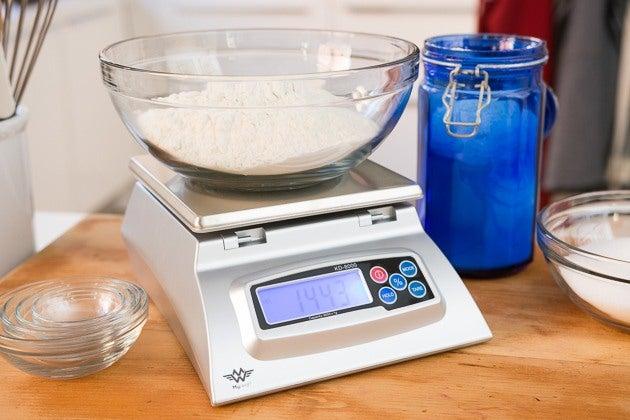A means of measuring out ingredients is essential for consistent results from your favourite recipes. And in order to give you a fair review of the best, we've weighed up (sorry) the pros and cons of a selection of digital, mechanical and balance scales to enhance your culinary prowess.

Of course, in some cases a dish might call for a joyously slapdash approach – a pinch of salt, a sprinkling of rosemary, a handful of strawberries – but accuracy is paramount when it comes to tasks such as baking cakes, breads and pastry.
In these cases, precisely the right amounts of wet and dry ingredients (butter, flour, sugar) are required before you can even think about taking on Prue Leith or Mary Berry.
So, are you a modern cook looking for a digital (efficient, lightweight, easy to store) scale, a nostalgic homemaker seeking a mechanical (pleasing to look at, but chunky and heavy) scale, or a vintage fiend hunting for a balance (looks great and fun to use but slow) scale?
It’s a contentious decision, and it says a lot about which kitchen tribe you belong to. According to Marcus Eaves, executive chef of Oblix at The Shard, you should always use digital scales. “The more traditional scales look great – however, they do leave more room for error,” he advises.
